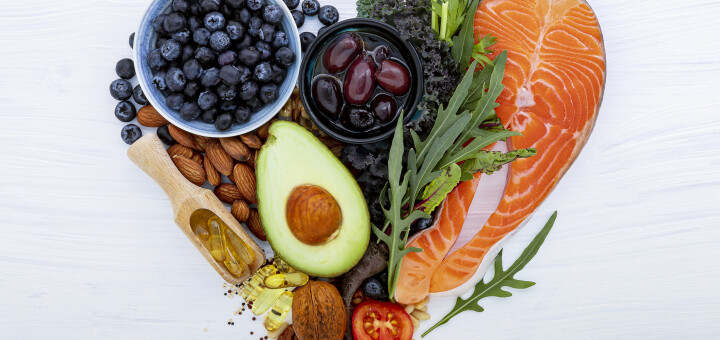Many of us have tried a low-fat diet at some point in our lives, but is it healthy for you? The answer is simply, No. Eating fat does not make you fat, just like eating green vegetables will not make you green. In fact, healthy fats are a critical part of your diet.
Fats play numerous roles in the body, including:
- Providing a source of energy
- Acting as building blocks for cell membranes and hormones, especially sex hormones (testosterone, estrogen, and progesterone)
- Aiding the absorption of the fat-soluble vitamins: A, D, E, and K
- Allowing for the proper use of proteins
- Serving as a protective lining for the organs of the body, especially your gut lining
- Helping regulate energy absorption by slowing the absorption of food
- Increasing satiety (feeling full after eating)
- Making food taste good
How low-fat diets cause harm
- Causes gut issues; increased permeability allowing proteins to leak through the gut barrier
- Gallbladder issues. Your gallbladder is responsible for releasing bile, which emulsifies the fat. If you’re not eating enough fat, the bile can crystalize leading to gallstones, which may lead to gallbladder removal. This is due to the lack of eating fats.
- Fat is replaced with sugar and processed carbs
- Inability to absorb fat soluble vitamins critical (A,D,E,K) for function
- Hormonal issues- you need fat to build steroid hormones
- Increased inflammation due to prostaglandin (hormone-like substances that regulate inflammation) dysfunction
Good Fats vs. Bad Fats (general guidelines)
Around 30% of your diet: Saturated Fat (most stable fats) Sources:
- Red meat
- Coconut Oil
- Ghee
- Butter
- Dairy
Around 60% of your diet: Monunsaturated Fat (less stable with one double bond) Sources:
- Extra Virgin Olive Oil
- Almonds
- Macadamia Nuts
- Avocado
- Olives
Around 10% of your diet: Polyunsaturated (least stable with 2 or more double bonds) Sources:
(Aim for 1:1 ratio of Omega 3: Omega 6)
- Fish Oil (Omega 3)
- Flax Seeds (Omega 3)
- Chia Seeds (Omega 3)
- Walnuts
- Pecans
- Butternut
- Sesame Seeds
Stay away from the adulterated polyunsaturated fats. These are highly processed, highly heated, have chemicals and are deodorized—which can cause havoc in the body. Bad fats to avoid:
- Partially hydrogenated/ hydrogenated oils found in
- Fast food
- Fried fats
- Packaged/processed fats
- Vegetable oils such as canola, safflower, sunflower, corn, peanut, grapeseed and soybean oil
If you are interested in working with a nutritionist, please contact Mai Wagner, Functional Nutritional Therapy Practitioner at mwagner@paloaltojcc.org. You can learn more about the Functional Nutritional Therapy offerings here.







Comments are moderated and will not appear immediately.